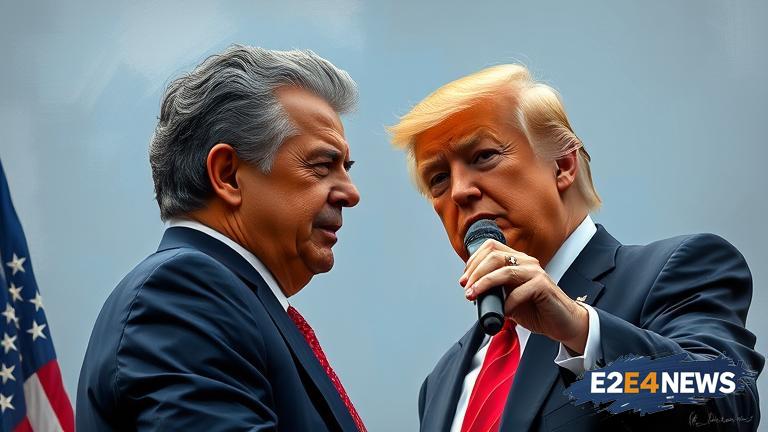Brazilian President Luiz Inacio Lula da Silva has pushed back against the United States after President Donald Trump imposed tariffs on steel and aluminum imports from Brazil. The move has sparked a trade dispute between the two nations, with Lula vowing to take retaliatory measures. The tariffs, which went into effect immediately, are part of a broader effort by the Trump administration to protect American industries. However, Lula has argued that the tariffs are unfair and will harm Brazilian workers. The Brazilian president has also accused Trump of trying to strong-arm his country into accepting unfavorable trade deals. The trade dispute between the US and Brazil has been escalating for months, with both sides imposing tariffs on each other’s goods. The US has also imposed tariffs on steel and aluminum imports from other countries, including China, Canada, and Mexico. Lula has said that Brazil will not be intimidated by the US and will take all necessary measures to protect its economy. The Brazilian government has already announced plans to impose retaliatory tariffs on US goods, including airplanes, cars, and agricultural products. The trade dispute has sparked concerns about the impact on the global economy, with some analysts warning that it could lead to a trade war. The US and Brazil have a long history of trade relations, with the US being one of Brazil’s largest trading partners. However, the relationship has become increasingly strained in recent months, with disagreements over trade, security, and other issues. Lula has been a vocal critic of Trump’s trade policies, which he says are protectionist and unfair. The Brazilian president has also accused the US of trying to undermine the rules-based international trading system. The trade dispute has also sparked concerns about the impact on the environment, with some analysts warning that it could lead to increased carbon emissions. The US and Brazil have both made commitments to reduce their carbon emissions under the Paris Agreement, but the trade dispute has raised questions about their ability to meet these commitments. The Brazilian government has said that it will continue to work with the US to resolve the trade dispute, but has also made it clear that it will not back down. The trade dispute has sparked a heated debate in Brazil, with some politicians calling for tougher measures against the US. The Brazilian economy has been struggling in recent years, with high unemployment and slow growth. The trade dispute has raised concerns about the impact on the economy, with some analysts warning that it could lead to a recession. The US and Brazil have a complex and multifaceted relationship, with cooperation on issues such as security, education, and culture. However, the trade dispute has raised questions about the future of this relationship and the ability of the two nations to work together on key issues. The Brazilian government has said that it will continue to prioritize its relationship with the US, but has also made it clear that it will not compromise on its core interests. The trade dispute has sparked a wider debate about the role of the US in the global economy and the impact of its trade policies on other nations. Some analysts have warned that the US is becoming increasingly isolationist, with its trade policies reflecting a desire to protect American industries at the expense of other nations. The trade dispute between the US and Brazil has raised concerns about the impact on the global economy and the ability of nations to work together to address key challenges. The Brazilian government has said that it will continue to work with other nations to promote free trade and cooperation, but has also made it clear that it will not back down in the face of US pressure. The trade dispute has sparked a heated debate in the US, with some politicians calling for tougher measures against Brazil. The US economy has been performing well in recent years, but the trade dispute has raised concerns about the impact on American workers and industries. The US and Brazil have a long history of cooperation on trade issues, but the dispute has raised questions about the future of this relationship. The Brazilian government has said that it will continue to prioritize its relationship with the US, but has also made it clear that it will not compromise on its core interests. The trade dispute has sparked a wider debate about the role of trade in the global economy and the impact of protectionist policies on nations and industries.
